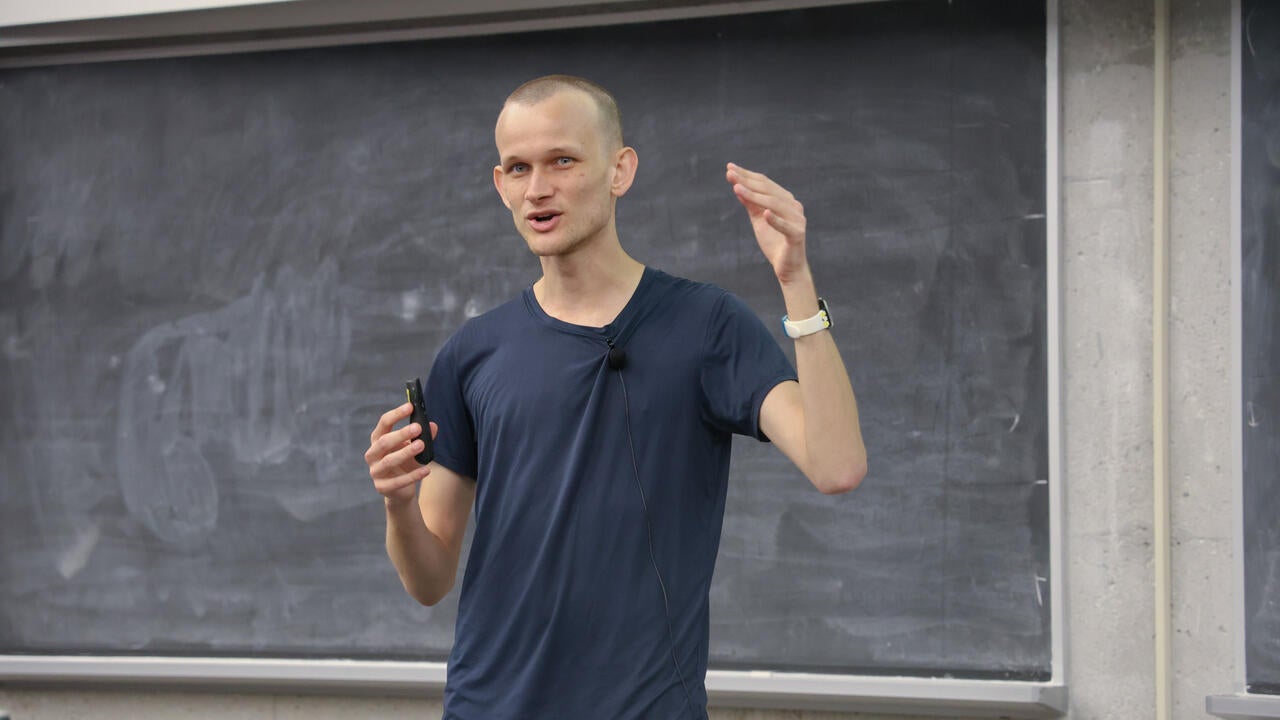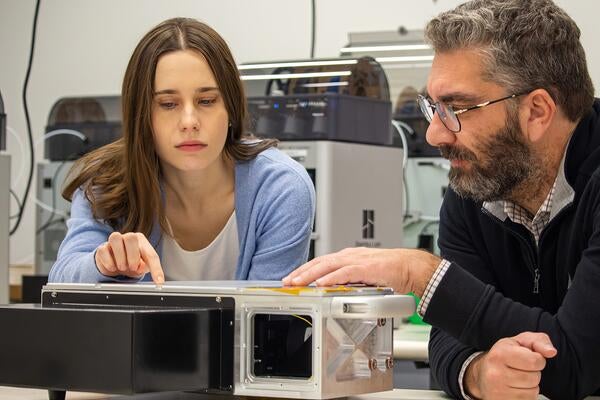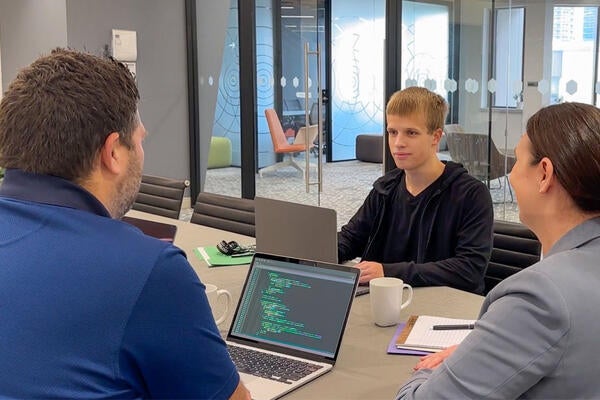
Ethereum co-founder Vitalik Buterin visits Waterloo
Former computer science student turned tech billionaire talks cryptocurrency, innovation and the math behind the blockchain

Former computer science student turned tech billionaire talks cryptocurrency, innovation and the math behind the blockchain
By Melodie Roschman Faculty of MathematicsOn Saturday, July 6, nearly two hundred students gathered for an ask-me-anything event with Vitalik Buterin, the co-creator of the Ethereum blockchain and a former University of Waterloo student.
Buterin studied computer science at Waterloo and worked as a research assistant for cryptographer and computer science professor Ian Goldberg. In 2013 he wrote a white paper proposing Ethereum. Buterin was awarded a $100,000 USD grant from the Thiel Fellowship in 2014 and subsequently left Waterloo to work on Ethereum full-time. Today, Ethereum is second only to Bitcoin in market value.
In his talk, Buterin discussed the math behind the blockchain, areas for innovation and the future of cryptocurrency. “Will crypto become the Esperanto of finance, the Linux of finance or the Internet of finance?” he asked rhetorically. “I think it depends — there are a lot of countries, particularly in the developing world, where there is a lot of demand for cryptocurrency because the traditional banking system is not effective.”
Buterin also distinguished between early-stage technologies (like cryptocurrency, AI and space travel) and later-stage technologies (like the pharmaceutical industry), arguing that early-stage technologies are an ideal space for ambitious thinking, innovation and employing pure math, engineering and science. “There’s a real focus right now on building amazing things,” he said.

“We are incredibly lucky to have Vitalik come into town to talk about Ethereum and its future roadmap,” said systems design engineering master’s student Monica Tsang. “He encouraged us to work on the optimistic, idealistic side of blockchain development instead of chasing quick money. Being a jack-of-all trades will help us learn new knowledge fast in this quickly changing blockchain space!”
Buterin emphasized the importance of shared values in technological ventures, both for practical reasons and for ethical ones. “Make sure you and your co-founders are aligned on values, both in terms of what you want to achieve in the world and also what you want to get out of the project,” he said. “Consider what kind of relationship you want to have with each other, with your investors, with your users and with your community.”
Buterin’s talk was the finale of a four-day workshop series, “Solidity 101 Bootcamp,” sponsored by De University of Ethereum, VentureMiner and the Faculty of Mathematics. The bootcamp was billed as a comprehensive educational program designed to empower the next generation of blockchain developers.
“It was such a thrill hosting Vitalik Buterin,” said Stephanie Whitney, director for Research & Innovation Partnerships in the Math Innovation Office. “The audience was blown away by how thoughtfully he outlined avenues for contributing to the blockchain ecosystem. We can’t thank him and the Ethereum Foundation enough for this amazing opportunity.”
You can learn more about Ethereum on the Ethereum Foundation website. You can learn more about the Math Innovation’s Entrepreneurship and Impact Series, including future visitors, on the Math Innovation Website.

Read more
Researchers developed a process to reduce the amount of energy needed to run data centres

Read more
Phantom Photonics’ quantum remote sensing technology offers precision for industries operating in extreme environments

Read more
Math student helps design responsible AI pilot that streamlines employee efficiency for Canada’s public servants
The University of Waterloo acknowledges that much of our work takes place on the traditional territory of the Neutral, Anishinaabeg, and Haudenosaunee peoples. Our main campus is situated on the Haldimand Tract, the land granted to the Six Nations that includes six miles on each side of the Grand River. Our active work toward reconciliation takes place across our campuses through research, learning, teaching, and community building, and is co-ordinated within the Office of Indigenous Relations.